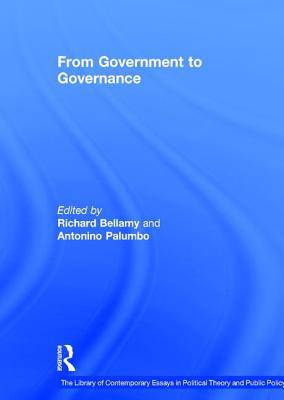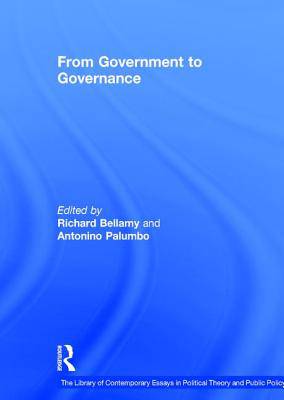
- Afhalen na 1 uur in een winkel met voorraad
- Gratis thuislevering in België vanaf € 30
- Ruim aanbod met 7 miljoen producten
- Afhalen na 1 uur in een winkel met voorraad
- Gratis thuislevering in België vanaf € 30
- Ruim aanbod met 7 miljoen producten
Zoeken
Omschrijving
Neoliberal reforms and globalization have deeply transformed the state and set in motion a momentous shift from 'government' to 'governance'. Governance entails a move away from traditional hierarchical forms of organization and the adoption of network forms. It also entails a revision of the relationship between state and civil society in a more participatory direction. Governance is finally said to be responsible for shifting the emphasis away from statute law to more flexible forms of regulation and implementation. The state is thus claimed to be superseded by a 'networked polity' where authority is devolved to task-specific institutions with unlimited jurisdictions and intersecting memberships operating at sub- and supra-national level. This volume brings together a representative sample of the key articles that established governance as a major field of research and helped clarify the main critical issues to be addressed by those involved in research and teaching in this area.
Specificaties
Betrokkenen
- Auteur(s):
- Uitgeverij:
Inhoud
- Aantal bladzijden:
- 536
- Taal:
- Engels
- Reeks:
Eigenschappen
- Productcode (EAN):
- 9780754628033
- Verschijningsdatum:
- 28/05/2010
- Uitvoering:
- Hardcover
- Formaat:
- Genaaid
- Afmetingen:
- 168 mm x 245 mm
- Gewicht:
- 1270 g

Alleen bij Standaard Boekhandel
+ 675 punten op je klantenkaart van Standaard Boekhandel
Beoordelingen
We publiceren alleen reviews die voldoen aan de voorwaarden voor reviews. Bekijk onze voorwaarden voor reviews.











